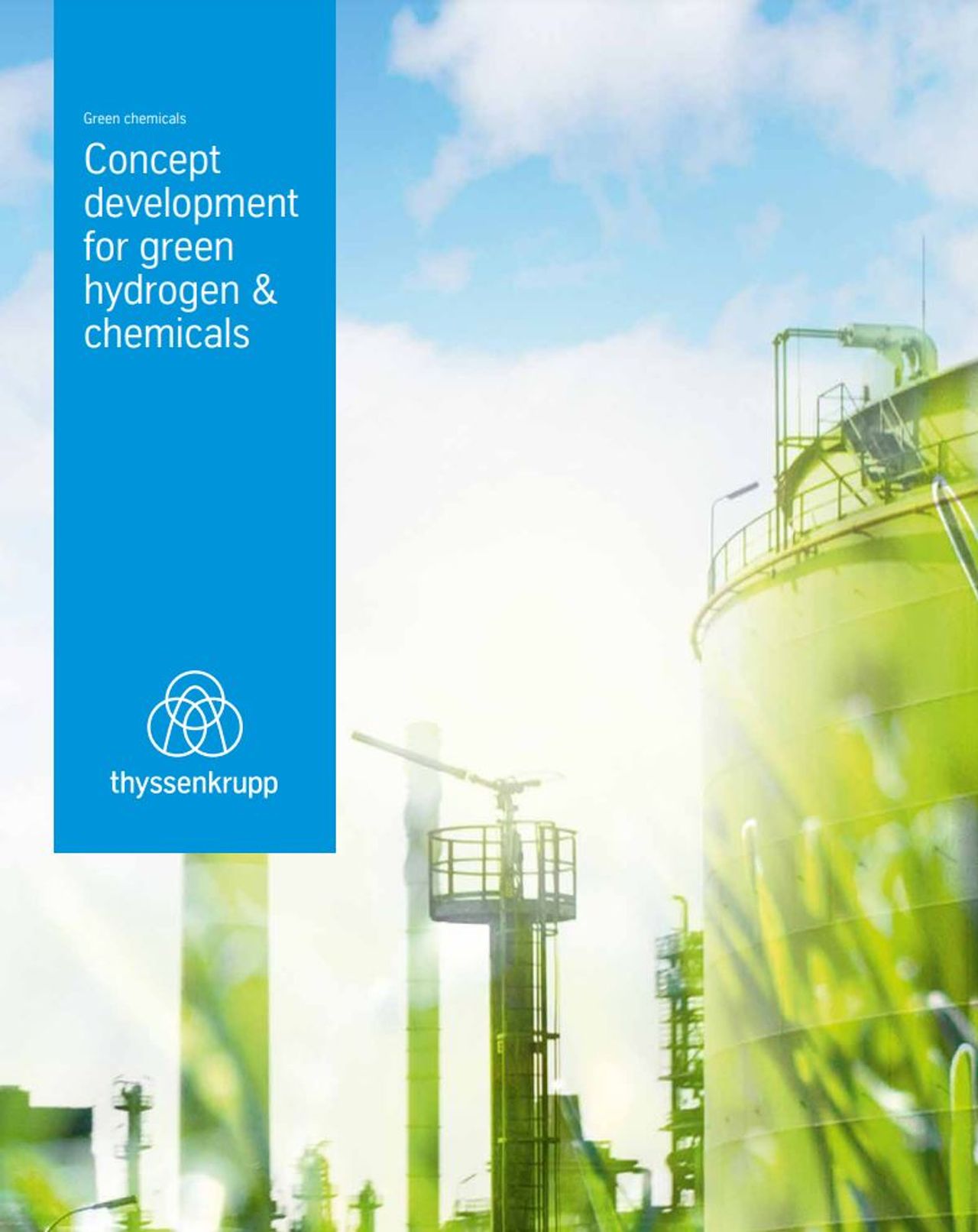
Methanol is an important raw material for the chemical, construction and plastics industries, but the conventional production process is not particularly green. At thyssenkrupp we can offer a climate-friendly alternative. By synthesizing renewable methanol from hydrogen and carbon dioxide we can help to tackle climate change by mitigating the impact of greenhouse gases.
Important raw material
Methanol, an organic compound belonging to the alcohol family, is one of the most-produced organic chemicals. In 2015 the global methanol demand reached 75 million metric tons, whereas the worldwide production capacity is about 110 million metric tons (www.methanol.org/the-methanol-industry)
In the chemical industry methanol mainly serves as a raw material in the production of formaldehyde, olefines, acetic acid, MTBE, DME as well as biodiesel. So, renewable methanol is a pre-requisite for making a broad range of chemical products green such as polymer fibers for the textile industry, plastics for packaging, glues, adsorbents/diapers, paints, adhesives, solvents and much more. Besides its use in the chemical, construction and plastics industries, methanol also serves as a fuel or fuel additive. The conventional production method involves a catalytic process using fossil feedstock such as natural gas or coal. With demand risingthere is growing interest in a more environmentally friendly alternative to the conventional technology.
Renewable methanol use cases
Our renewable methanol is not just environmentally sound but can also be used in a variety of ways, e.g. as an energy carrier for storing electricity generated from renewable sources or as a transportation fuel. Methanol can be added to conventional liquid fuels or used to fuel 100% methanol-based drive systems. For example, a methanol-reforming technology developed by thyssenkrupp Marine Systems produces the hydrogen required for the unique HDW Fuel Cell System that powers non-nuclear submarines. Leading shipping companies are also investigating the use of methanol as fuel in conventional combustion engines and in methanol-powered fuel cells. The great advantage of methanol is that existing infrastructure for liquid fuels can be used directly or modified easily and inexpensively.
Renewable methanol production
For industrial scale plants thyssenkrupp will employ its own Uhde Methanol technology. The hydrogen is produced by means of the proprietary and highly efficient alkaline water electrolysis (AWE) process which is based on the proven chlor-alkali electrode technology developed by thyssenkrupp nucera. The carbon dioxide is recovered from biogas or other fermentation plants, flue gas or waste gas. By removing or keeping this greenhouse gas from the atmosphere, the process makes an important contribution to climate protection.
The electric power required for green methanol production comes from renewable sources, such as wind power, geothermal energy or hydropower. In other words, this green methanol technology makes particular sense in countries where there is plenty of renewable power as well as a legal framework that further renewable energy and its conversion into chemicals.
Ecological and economic benefits
- Sustainable, climate-protecting technology
- Customized, cost-effective solution for every operator
- One-stop solution from a single source: EPC, plant operation, staff training, service and spare parts from a single source – thyssenkrupp
Global warming is a fact.
Now is the time to act – before it is too late.
Renewable methanol as alternative fuel and feedstock for the chemical industry & manufacturing processes reduces greenhouse gas emissions.
Mitigate global warming with green technologies from thyssenkrupp.
Green Hydrogen and Green Chemicals Concept Development
- Download
pdf | 430.77 kb

